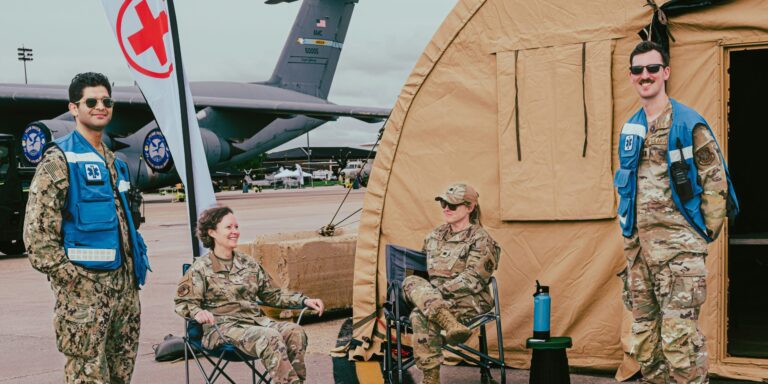On October 24, 2025, PBS NewsHour highlighted the U.S. military’s strategic move to deploy the USS Gerald R. Ford aircraft carrier to the Caribbean as part of an intensified effort to combat drug trafficking and bolster regional security. The deployment, which includes over 6,000 personnel from the U.S. Navy, represents a significant escalation in the United States’ military activities in the region. The carrier strike group’s primary mission is to disrupt drug smuggling operations and dismantle transnational criminal organizations operating in the Caribbean, particularly those involved in the illicit drug trade. The United States has framed this deployment as a critical step in preventing the flow of narcotics into the U.S. and enhancing its national security.
This deployment comes in the wake of growing concerns about the increasing influence of drug cartels and criminal organizations in the region. The U.S. Southern Command, which oversees military operations in Latin America and the Caribbean, has been focusing on the Caribbean as a key area for anti-drug effort
s. Since the USS Gerald R. Ford’s arrival in the region, the U.S. military has conducted several high-profile operations against vessels suspected of trafficking drugs. These operations have intensified in recent weeks, with an unprecedented number of airstrikes carried out against suspected drug boats. The strikes have already resulted in numerous casualties, with at least 46 individuals killed in the week prior to the segment’s airing.
Read Also: https://leadrmagazine.com/u-s-military-expands-anti-drug-operations-to-the-pacific/
The U.S. government’s efforts to draw parallels between this military action and the global war on terrorism have raised eyebrows, with some officials likening the fight against drug cartels to the fight against groups like ISIS and al-Qaida. This rhetoric has been echoed by both President Trump and Defense Secretary Pete Hegseth, who have emphasized the importance of a military response to what they see as an ongoing threat posed by transnational criminal organizations. The narrative suggests that the operations are not only about curbing drug trafficking but are also integral to broader U.S. national security objectives, which include curtailing the influence of adversarial nations in the region.
This military escalation, however, has stirred significant diplomatic tensions, particularly with countries like Colombia and Venezuela. In one of the more contentious developments, the U.S. sanctioned Colombian President Gustavo Petro, accusing his government of enabling the dramatic increase in cocaine production in the country. President Petro, however, rejected these accusations, asserting that his government has long been committed to fighting the drug trade and that such sanctions were contradictory and counterproductive. The relationship between the U.S. and Colombia, a key ally in anti-drug efforts, has been increasingly strained due to these diplomatic spats.
In Venezuela, the presence of the USS Gerald Ford has been met with sharp criticism from President Nicolás Maduro, who condemned the U.S. military operations as an “illegal” threat. Maduro has vowed to protect Venezuela against what he perceives as unwarranted U.S. aggression, calling the U.S. interventionist actions in the Caribbean a violation of international law. His remarks reflect growing regional resistance to U.S. military presence in the area, especially as the U.S. seeks to expand its military footprint in Latin America under the guise of drug interdiction.
The deployment of the USS Gerald Ford and the intensification of military strikes against drug smugglers have raised critical questions about the effectiveness and legality of using military force to combat narcotics trafficking. Critics argue that such measures might not only violate international law but could also exacerbate tensions with regional governments, many of whom view these actions as infringements on their sovereignty. The U.S. military’s presence is seen by some as a form of external interference that could alienate countries in the region, undermining the possibility of collaborative efforts to combat the drug trade and other security challenges.
In contrast, supporters of the deployment argue that the growing drug problem in the region necessitates a more aggressive approach, one that involves not only law enforcement cooperation but also direct military action. They maintain that the U.S. has a responsibility to protect its borders and prevent the flow of illegal drugs, which contribute to significant domestic issues, including addiction and crime. However, the debate surrounding the use of military force in this context highlights a deeper issue: the balancing act between addressing national security concerns and respecting the sovereignty of neighboring nations.
The heightened military presence and its strategic implications are likely to continue to shape the conversation on U.S. foreign policy in the Caribbean and Latin America for years to come. As this situation unfolds, it remains to be seen how the U.S. will navigate the complex web of international diplomacy, national security interests, and the legal and moral questions surrounding military intervention in the region.


